Carpinteria Pot Wars: A Dutch Clean-Air Technology Gives Residents Some Hope
Expensive Carbon Filters Can ‘Scrub’ the Stink of Greenhouse Cannabis, but How Many Growers Will Install Them?
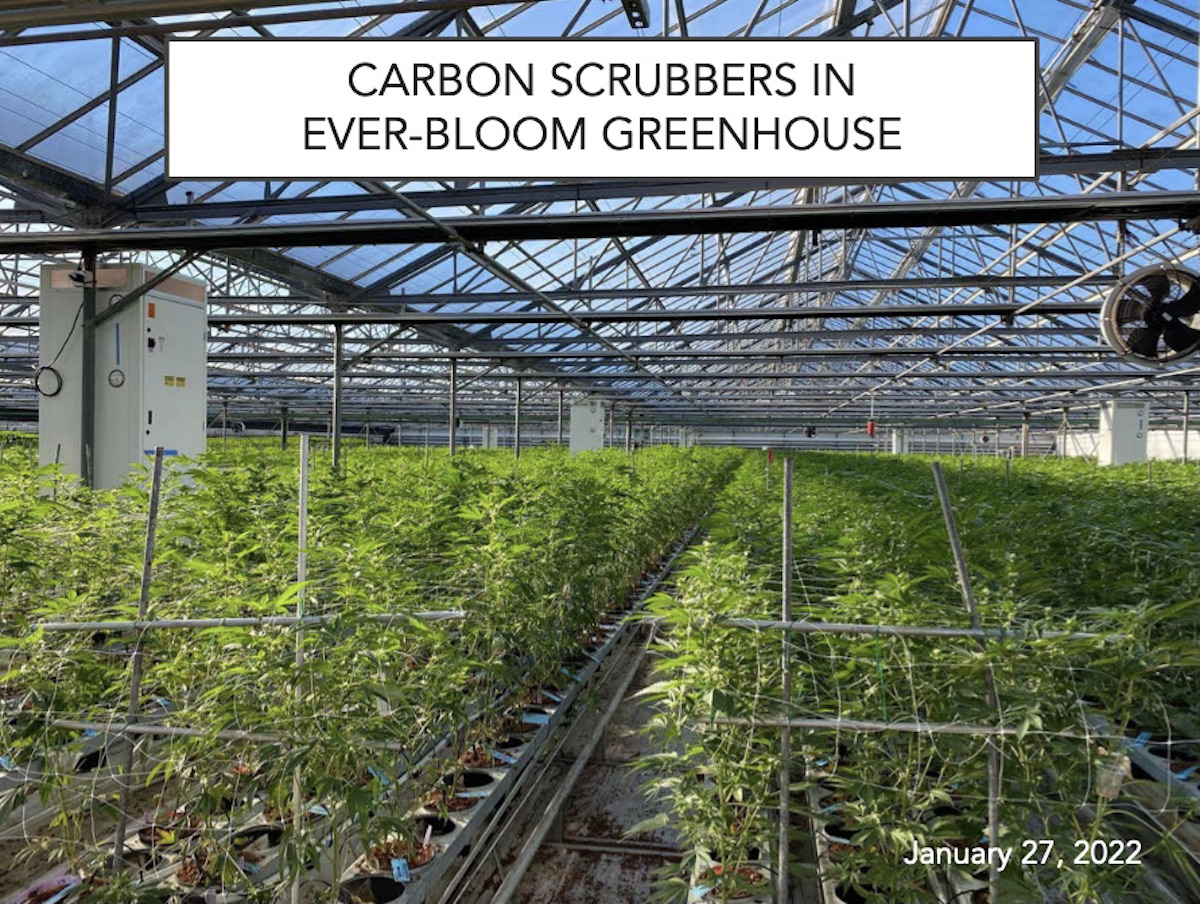
Paul Ekstrom, a retired firefighter in Carpinteria, says he and his wife, Linda, have been living a happier life for the past few months, largely free from the pungent smell of pot that drove them indoors with the windows shut every day.
That’s because earlier this year, Ed Van Wingerden, owner of the 11-acre Ever-Bloom cannabis greenhouse operation at 4701 Foothill Road, just 65 feet from the Ekstroms’ home on Manzanita Street, installed more than 100 carbon filters from the Netherlands to clean up the cannabis odors.
A study released this month by SCS Engineers, a Santa Maria consulting firm, shows that on average, the filters or “scrubbers” developed by the Envinity Group, a Dutch firm, can eliminate 84 percent of the “skunky” smell of cannabis before it escapes through the greenhouse roof vents.
“When those carbon scrubbers went in, the odor dropped dramatically,” Paul Ekstrom said. “Before, it could be six days a week with a strong smell in the morning and a strong smell in the evening — and it’s not happening. It’s been like a 90 to 95 percent improvement.”
Also gone, Ekstrom said, is the annoying “laundromat” smell of an earlier technology — the curtain of mist that was emitted from perforated pipes around the outside perimeter of the greenhouses. This misting, called a “vapor-phase” system, was designed to neutralize the stench of cannabis in the outside air, but some of Ever-Bloom’s neighbors said the mist itself was causing them breathing problems. Van Wingerden shut down the system 10 months ago.
In 2020, Ekstrom and the Santa Barbara Coalition for Responsible Cannabis, a citizens’ group advocating for tighter regulation of the industry, and Gregory and Marllus Gandrud, then-residents of Chaparral Drive, filed a public nuisance lawsuit against Van Wingerden and other members of his family, alleging that the “ever-present noxious odor” from the Foothill greenhouses was ruining their quality of life and making them sick. Ever-Bloom became a flashpoint in the local pot wars.
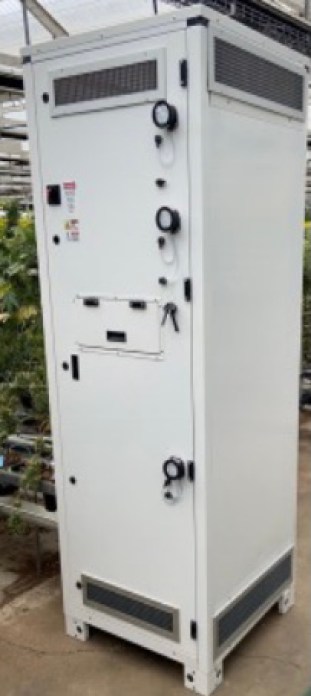
But now the parties are in negotiation, and a settlement is expected soon. The Dutch scrubbers represent “the latest and best technology,” Van Wingerden said this week, adding, “It’s only fair that everyone puts them in.”
‘Our Commitment’
The SCS study was performed over 48 hours last August at Roadside Blooms, a four-acre cannabis greenhouse operation equipped with Envinity scrubbers at 3684 Via Real. The operators, Van Wingerden, and his partners — Phil Greene, Mike and Adam Palmer, and Amir-Hamsa Eskandari — said they paid between $750,000 and $900,000 for the study, which compared the smell of pot at harvest time in and around a greenhouse with scrubbers to that of a greenhouse without scrubbers.
“We view it as part of our investment and our commitment to fix the odor in the community,” Greene said. By the end of 2023, he said he hopes “the majority of people who need scrubbers will have them.”
Noting that the SCS study was “site-specific,” county officials said this week that they had not yet determined whether Envinity scrubbers represent the best available odor-control technology for the greenhouse industry.
But on Wednesday, the county Planning Commission unanimously required scrubbers for one of the largest proposed cannabis greenhouse operations in the valley: 13 acres at Vista Verde Farms, 3450 Via Real. Cannabis is not yet under cultivation there; it’s the site of a Gallup & Stribling orchid operation owned by Case Van Wingerden and his son, Alex.
The Vista Verde operators — Alex Van Wingerden and Tristan Strauss, the owner of Headwaters, a California-based cannabis supply chain — had initially proposed to use solely a vapor-phase system to control odor, and the county Planning Director approved that plan. After Concerned Carpinterians, a citizens’ group, appealed the project to the county Planning Commission, Strauss and Van Wingerden revised their application and agreed to install only scrubbers.
At the same time, Strauss has suggested that the cost would be prohibitive if scrubbers were required industry-wide, especially in today’s bad market. At $20,000 each and a recommended ratio of up to 10 per acre, it’s expensive to adopt the new technology. The cost at Ever-Bloom alone was about $2 million; installing scrubbers valley-wide, as the coalition and Van Wingerden have called for, might represent a cost of nearly $40 million.
“The cannabis market is in a place of peril right now,” Strauss told the county Planning Commission last July, during a hearing on Valley Crest, a nine-acre cannabis greenhouse operation that he runs at 4385 Foothill. The price of cannabis has dropped 80 percent since 2018, to about $300 per pound, Strauss said.
Valley Crest, he noted, is surrounded by farmland and the project is not at the top of the county’s long list of residential odor complaints in the Carpinteria Valley. Strauss said the vapor-phase system for odor control was working fine and there was no need for scrubbers.
“Politicians in Santa Barbara County have to decide if they want us to stay here,” he said.
‘Financial Suicide’
But administrators at Cate School, an exclusive boarding high school half a mile away and uphill from Valley Crest on Cate Mesa Road, told county planners that the smell of pot wafts into the campus daily from cannabis operations in the valley below; no one knows which greenhouses are to blame.
In addition, several of Valley Crest’s neighbors on Casitas Pass Road, including the owners of an avocado orchard and a large outdoor rose operation, said the smell of pot from the project and its vapor-phase system were intolerable.
In a 3-2 vote, the commission required the growers to install scrubbers at Valley Crest within 12 months as a condition of their zoning permit.
“There is a solution out there, but you said it would be financial suicide to install scrubbers,” Commission Chair Mike Cooney, who represents the Carpinteria Valley, told Strauss. “We can’t use that threat as the standard. We need to see if as much has been done as can be done.”
Sign up for Indy Today to receive fresh news from Independent.com, in your inbox, every morning.
Case Van Wingerden appealed the commission’s ruling to the county Board of Supervisors, and in October, the board tossed out the requirement for scrubbers, noting that the project was not near any residentially zoned property. The Valley Crest operation, which is owned by Case and Alex Van Wingerden, will be allowed to continue operating with solely a vapor-phase system for odor control.
In the wake of the new study on the Envinity scrubbers, the real test of county policy will come on Tuesday, when the board hears an identical appeal by Case Van Wingerden. The project on the table this time is Ceres Farm, a nine-acre cannabis greenhouse operation run by Strauss at 6030 Casitas Pass Road, next to Valley Crest. Cate School administrators and the greenhouse neighbors are again urging the board to uphold a commission ruling and require the growers to install scrubbers within 12 months.
“We continue to smell the odor at Cate School, and it’s impossible for us to discern where it’s coming from,” Charlotte Brownlee, assistant head of the school, said this week. “We want to get to a situation where the enforcement is not complaint-based. We’re very much interested in seeing that scrubbers be adopted because they work.”
‘The Turning Point’
Just beyond the boundaries of the City of Carpinteria, 35 greenhouse operations totaling 166 acres of cannabis are proposed or have been approved for zoning permits, county records show. Under lenient — some would say, lax — county rules, most have been operating for more than four years without permits or business licenses. Cultivation will be capped at 186 acres.
Since early 2018, records show, Carpinteria Valley residents have filed more than 2,800 odor complaints with the county regarding the skunky smell of pot and the perfumy smell of the vapor-phase systems in their community. Although the stink was much worse several years ago, hot spots persist along Foothill and Casitas Pass roads, Via Real, La Mirada Drive, and Cravens and Padaro lanes and in the vicinity of the Santa Barbara Polo and Racquet Club.
In 2021, the coalition signed an agreement with CARP Growers, an industry group representing 18 landowners who hold 88 percent of the state licenses for marijuana cultivation in the valley. Under the pact, the growers pledged to resolve their odor problem by “continuously employing the best available control technology” and adopting a stringent protocol for addressing complaints. In return, the coalition agreed to stop opposing and appealing county approvals of CARP Grower projects.
Marc Chytilo, an attorney for the group, said that the scrubber study at Roadside Blooms redefines the standard for all of the cannabis greenhouses in the valley and beyond.
“This moment that we’re in represents the turning point,” Chytilo said. Growers in the hot spots should install scrubbers first, he said, but eventually all greenhouse operators should replace their vapor-phase systems with scrubbers.
“To have a former president of CARP Growers change course and elect to go with scrubbers in place of vapor phase is a significant development,” Chytilo said, in a reference to the Vista Verde project. “I’m hoping that that trend will continue.”
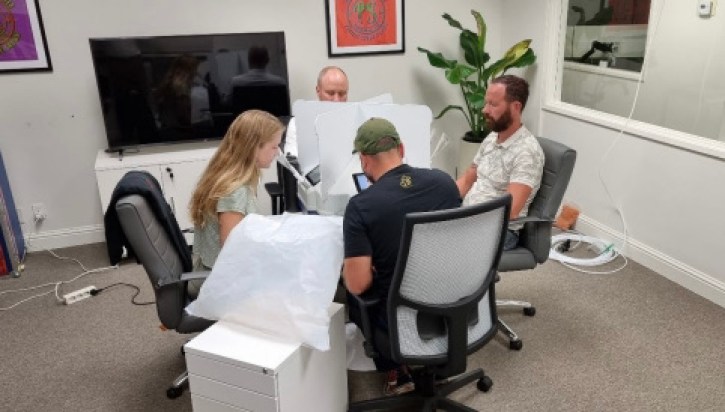
‘Not Good Enough’
So far, only three cannabis greenhouse operations in the valley are equipped with scrubbers. In 2020, Cindy and David Van Wingerden, owners of CVW Organic Farms on Cravens Lane, also known as Farmlane, were the first to install them as part of an agreement with the coalition and Concerned Carpinterians, a loosely knit group of residents who, like the coalition, advocate for more stringent regulation of the cannabis industry.
The scrubbers at CVW are designed and engineered by Marc Byers, a Summerland resident who owns Byers Scientific, an industrial odor management firm. According to Byers, a study by SCS found that, on average, his scrubbers can eliminate 94 percent of the smell of pot in cannabis greenhouses. At CVW, the Byers scrubbers run at night; a Byers vapor-phase system is turned on during the day.
Ever-Bloom and Roadside Blooms are the only two greenhouse operations currently equipped with Envinity scrubbers. Neither uses a vapor-phase system. According to Greene, an additional 100 Envinity scrubbers will be installed early next year at Maximum Nursery, a four-acre cannabis operation at 4555 Foothill, and Creekside, a four-acre operation at 3508 Via Real. Both are owned by Ed’s brother, Winfred Van Wingerden.
Graham Farrar, the owner of Glass House Farms, two large cannabis operations that have been a focus of odor complaints from residents, says he will install Envinity scrubbers next year on three acres of greenhouses at 5601 Casitas Pass Road. Glass House operates as Mission Health Associates on this property, and Farrar is a co-owner. The greenhouse closest to the road is already equipped with an earlier model of carbon filters, he said.
It will take longer to install Envinity scrubbers at his eight-acre G&K Farms at 3561 Foothill, Farrar said, because the zoning permit for a 25,000-square-foot processing building he wants to build there is awaiting a hearing before the state Coastal Commission. Concerned Carpinterians have appealed to the state panel to reverse the county supervisors’ approval of the project earlier this year.
“Once the appeal has run its course, the door opens up for us to revise our Odor Abatement Plan and make the change” to scrubbers at G&K Farms, Farrar said. He is currently using a vapor-phase system for odor control.
Scrubbers or no, the odor problem in the Carpinteria Valley is vastly complicated by the fact that many greenhouse operations are clustered together and it’s impossible to determine which one is causing the smell. And even scrubbers are not 100 percent effective.
The smell of cannabis at Seaside Gardens, a business that is advertised as a “botanical wonderland” at 3700 Via Real, is a case in point. It is next to Roadside Blooms. Linda Wudl, the owner, said she appreciates her neighbor’s use of scrubbers but is plagued almost daily by the noxious smell of pot that settles in the employee parking lot behind her warehouse.
“It just makes me sick,” Wudl said, adding that the smell drifts into her sales areas, and her customers are starting to complain. “The scrubbers are seemingly not working — or if they’re working, it’s still not good enough.”
Ed Van Wingerden noted that other cannabis greenhouse operations in the area have not yet installed scrubbers.
“It could be coming from somewhere else,” he said of the smell at Seaside. “It’s definitely not coming from us.”
Melinda Burns is an investigative journalist with 40 years of experience covering immigration, water, science, and the environment. As a community service, she offers her report to multiple publications in Santa Barbara County, at the same time, for free.
Correction: This story was updated on December 9 to state that the primary reason the Board of Supervisors tossed out the requirement for scrubbers at Valley Crest was because the project was not near any residentially zoned property, not due to potential strain on the electrical grid.
Support the Santa Barbara Independent through a long-term or a single contribution.

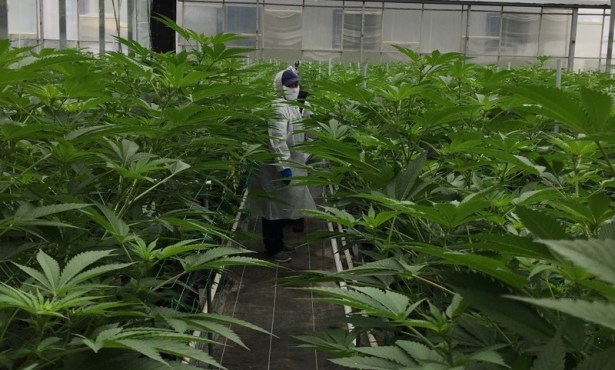
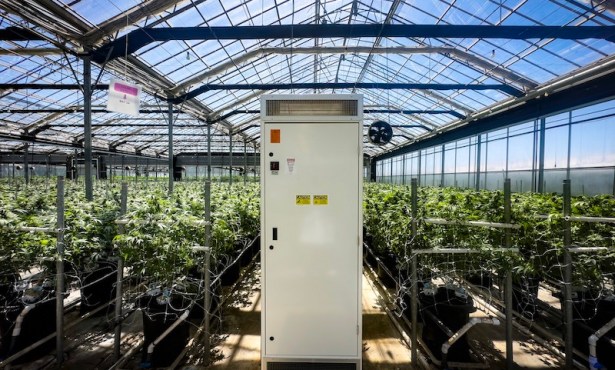
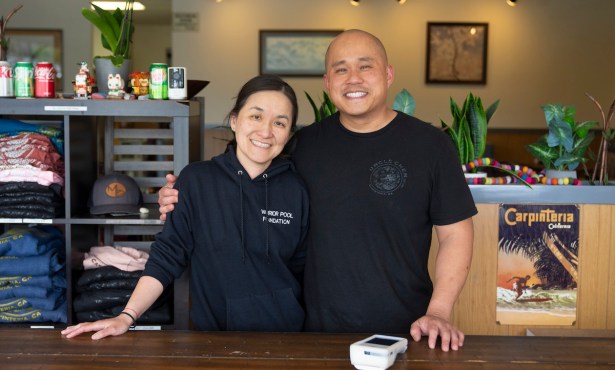
You must be logged in to post a comment.